- Home
- Kathy Reichs
Déjà Dead Page 2
Déjà Dead Read online
Page 2
In the glory days of the church, families sent their sons here by the thousands to train for the priesthood. Some still come, but their numbers are few. The larger buildings are now rented out and house schools and institutions more secular in mission where the Internet and fax machine replace Scripture and theological discourse as the working paradigm. Perhaps it’s a good metaphor for modern society. We’re too absorbed in communicating among ourselves to worry about an almighty architect.
I stopped on a small street opposite the seminary grounds and looked east along Sherbrooke, toward the portion of the property now leased by Le Collège de Montréal. Nothing unusual. I dropped an elbow out the window and peered in the opposite direction. The hot, dusty metal seared the skin on my inner arm, and I retracted it quickly, like a crab poked with a stick.
There they were. Juxtaposed incongruously against a medieval stone tower, I could see a blue-and-white patrol unit with POLICE-COMMUNAUTÉ URBAINE DE MONTRÉAL written on its side. It blocked the western entrance to the compound. A gray Hydro-Quebec truck was parked just ahead of it, ladders and equipment protruding like appendages to a space station. Near the truck a uniformed officer stood talking with two men in work clothes.
I turned left and slid into the westbound traffic on Sherbrooke, relieved to see no reporters. In Montreal an encounter with the press can be a double ordeal, since the media turn out in both French and English. I am not particularly gracious when badgered in one language. Under dual assault I can become downright surly.
LaManche was right. I’d come to these grounds the previous summer. I recalled the case—bones unearthed during the repair of a water main. Church property. Old cemetery. Coffin burials. Call the archaeologist. Case closed. Hopefully, this report would read the same.
As I maneuvered my Mazda ahead of the truck and parked, the three men stopped talking and looked in my direction. When I got out of the car the officer paused, as if thinking it over, then moved toward me. He was not smiling. At 4:15 P.M. it was probably past the end of his shift and he didn’t want to be there. Well, neither did I.
“You’ll have to move on, madame. You may not park here.” As he spoke he gestured with his hand, shooing me in the direction in which I was to depart. I could picture him clearing flies from potato salad with the same movement.
“I’m Dr. Brennan,” I said, slamming the Mazda door. “Laboratoire de Médecine Légale.”
“You’re the one from the coroner?” His tone would have made a KGB interrogator sound trusting.
“Yes. I’m the anthropologiste judiciaire.” Slowly, like a second-grade teacher. “I do the disinterments and the skeletal cases. I understand this may qualify for both?”
I handed him my ID. A small, brass rectangle above his shirt pocket identified him as Const. Groulx.
He looked at the photo, then at me. My appearance was not convincing. I’d planned to work on the skull reconstruction all day, and was dressed for glue. I was wearing faded brown jeans, a denim shirt, sleeves rolled to the elbows, Topsiders, no socks. Most of my hair was bound up in a barrette. The rest, having fought gravity and lost, spiraled limply around my face and down my neck. I was speckled with patches of dried Elmer’s. I must have looked more like a middle-aged mother forced to abandon a wallpaper project than a forensic anthropologist.
He studied the ID for a long time, then returned it without comment. I was obviously not what he wanted.
“Have you seen the remains?” I asked.
“No. I am securing the site.” He used a modified version of the hand flip to indicate the two men who stood watching us, conversation suspended.
“They found it. I called it in. They will lead you.”
I wondered if Constable Groulx was capable of a compound sentence. With another hand gesture, he indicated the workers once again.
“I will watch your car.”
I nodded but he was already turning away. The Hydro workers watched in silence as I approached. Both wore aviator shades, and the late afternoon sun shot orange beams off alternating lenses as one or the other moved his head. Their mustaches looped in identical upside-down U’s around their mouths.
The one on the left was the older of the two, a thin, dark man with the look of a rat terrier. He was glancing around nervously, his gaze bouncing from object to object, person to person, like a bee making sorties in and out of a peony blossom. His eyes kept darting to me, then quickly away, as if he feared contact with other eyes would commit him to something he’d later come to regret. He shifted his weight from foot to foot and hunched and unhunched his shoulders.
His partner was a much larger man with a long, lank ponytail and a weathered face. He smiled as I drew near, displaying gaps that once held teeth. I suspected he’d be the more loquacious of the two.
“Bonjour. Comment ça va?” The French equivalent of “Hi. How are you?”
“Bien. Bien.” Simultaneous head nods. Fine. Fine.
I identified myself, asked if they’d reported finding the bones. More nods.
“Tell me about it.” As I spoke I withdrew a small spiral notebook from my backpack, flipped back the cover, and clicked a ballpoint into readiness. I smiled encouragingly.
Ponytail spoke eagerly, his words racing out like children released for recess. He was enjoying the adventure. His French was heavily accented, the words running together and the endings swallowed in the fashion of the upriver Québecois. I had to listen carefully.
“We were clearing brush, it’s part of our job.” He pointed at overhead power lines, then did a sweep of the ground. “We must keep the lines clear.”
I nodded.
“When I got down into that trench over there”—he turned and pointed in the direction of a wooded area running the length of the property—“I smelled something funny.” He stopped, his eyes locked in the direction of the trees, arm extended, index finger piercing the air.
“Funny?”
He turned back. “Well, not exactly funny.” He paused, sucking in his lower lip as he searched his personal lexicon for the right word. “Dead,” he said. “You know, dead?”
I waited for him to go on.
“You know, like an animal that crawls in somewhere and dies?” He gave a slight shrug of the shoulders as he said it, then looked at me for confirmation. I did know. I’m on a first-name basis with the odor of death. I nodded again.
“That’s what I thought. That a dog, or maybe a raccoon, died. So I started poking around in the brush with my rake, right where the smell was real strong. Sure enough, I found a bunch of bones.” Another shrug.
“Uh-huh.” I was beginning to get an uneasy feeling. Ancient burials don’t smell.
“So I called Gil over …” He looked to the older man for affirmation. Gil was staring at the ground. “… and we both started digging around in the leaves and stuff. What we found don’t look like no dog or raccoon to me.” As he said it he folded his arms across his chest, lowered his chin, and rocked back on his heels.
“Why is that?”
“Too big.” He rolled his tongue and used it to probe one of the gaps in his dental work. The tip appeared and disappeared between the teeth like a worm testing for daylight.
“Anything else?”
“What do you mean?” The worm withdrew.
“Did you find anything besides bones?”
“Yeah. That’s what don’t seem right.” He spread his arms wide, indicating a dimension with his hands. “There’s a big plastic sack around all this stuff, and …” He shrugged, turning his palms up and leaving the sentence unfinished.
“And?” My uneasiness was escalating.
“Une ventouse.” He said it quickly, embarrassed and excited at the same time. Gil was traveling with me, his apprehension matching mine. His eyes had left the ground and were roving in double time.
“A what?” I asked, thinking perhaps I’d misunderstood the word.
“Une ventouse. A plunger. For the bathroom.” He imitated its use, his bo
dy thrust forward, hands wrapped around an invisible handle, arms driving upward and downward. The macabre little pantomime was so out of context it was jarring.
Gil let out a “Sacré …” and locked his eyes back on to the earth. I just stared at him. This wasn’t right. I finished my notes and closed the spiral.
“Is it wet down there?” I didn’t really want to wear the boots and coveralls unless it was necessary.
“Nah,” he said, again looking to Gil for confirmation. Gil shook his head, eyes never leaving the dirt at his feet.
“Okay,” I said. “Let’s go.” I hoped that I appeared calmer than I felt.
Ponytail led the way across the grass and into the woods. We descended gradually into a small ravine, the trees and brush growing thicker as we approached the bottom. I followed into the thicket, taking the larger branches in my right hand as he bent them back for me, then handing them off to Gil. Still small branches tugged at my hair. The place smelled of damp earth, grass, and rotting leaves. Sunlight penetrated the foliage unevenly, dappling the ground with puzzle piece splotches. Here and there a beam found an opening and sliced straight through to the ground. Dust particles danced in the slanted shafts. Flying insects swarmed around my face and whined in my ears, and creepers grabbed my ankles.
At the bottom of the trench the worker stopped to get his bearings, then turned to the right. I followed, slapping at mosquitoes, handing off vegetation, squinting through clouds of gnats around my eyes, and the occasional loner that went straight for the cornea. Sweat beaded my lip and dampened my hair, plastering the escapee strands to my forehead and neck. I needn’t have worried about my dress or coiffure.
Fifteen yards from the corpse I no longer needed a guide. Blending with the loamy scent of woods and sunlight I detected the unmistakable smell of death. The odor of decomposing flesh is like no other, and it hung there in the warm afternoon air, faint but undeniable. Step by step, the sweet, fetid stench grew stronger, building in intensity like the whine of a locust, until it ceased blending, and overpowered all other smells. The aromas of moss and humus and pine and sky deferred to the rankness of rotting flesh.
Gil stopped and hung back at a discreet distance. The smell was enough. He didn’t need another look. Ten feet farther the younger man halted, turned, and wordlessly pointed to a small heap partially covered by leaves and debris. Flies buzzed and circled around it, like academics at a free buffet.
At the sight my stomach went into a tuck, and the voice in my head started in on “I told you so.” With growing dread, I placed my pack at the base of a tree, withdrew a pair of surgical gloves, and picked my way gingerly through the foliage. When I neared the mound I could see where the men had raked away the vegetation. What I saw confirmed my fears.
Protruding from the leaves and soil was an arcade of ribs, their ends curving upward like the framework of an embryonic boat. I bent down for a closer look. Flies whined in protest, the sun iridescent on their blue-green bodies. When I cleared more debris I could see that the ribs were held in place by a segment of spinal column.
Taking a deep breath, I eased on the latex gloves and began to remove handfuls of dead leaves and pine needles. As I exposed the backbone to the sunlight, a knot of startled beetles flew apart. The bugs disentangled themselves and scuttled outward, disappearing one by one over the vertebral edges.
Ignoring the insects, I continued to remove sediment. Slowly, carefully, I cleared an area approximately three feet square. In less than ten minutes I could see what Gil and his partner had discovered. Brushing hair from my face with a latexed hand, I leaned back on my heels and surveyed the emerging picture.
I looked at a partially skeletonized torso, the rib cage, backbone, and pelvis still connected by dried muscle and ligament. While connective tissue is stubborn, refusing to yield its hold on the joints for months or years, the brain and internal organs are not so tenacious. With the aid of bacteria and insects, they decompose quickly, sometimes in a matter of weeks.
I could see remnants of brown and desiccated tissue clinging to the thoracic and abdominal surfaces of the bones. As I squatted there, the flies buzzing and the sunlight dappling the woods around me, I knew two things with certainty. The torso was human, and it hadn’t been there long.
I knew also that its arrival in that place wasn’t by chance. The victim had been killed and dumped. The remains lay on a plastic bag, the common kitchen variety used for garbage. It was ripped open now, but I guessed the bag had been used to transport the torso. The head and limbs were missing, and I could see no personal effects or objects close by. Except one.
The bones of the pelvis encircled a bathroom plunger, its long wooden handle projecting upward like an inverted Popsicle stick, its red rubber cup pressed hard against the pelvic outlet. Its position suggested deliberate placement. Gruesome as the idea was, I didn’t believe the association was spurious.
I stood and looked around, my knees protesting the change to upright posture. I knew from experience that scavenging animals can drag body parts impressive distances. Dogs often hide them in areas of low brush, and burrowing animals drag small bones and teeth into underground holes. I brushed dirt from my hands and scanned the immediate vicinity, looking for likely routes.
Flies buzzed and a horn blared a million miles away on Sherbrooke. Memories of other woods, other graves, other bones skittered through my mind, like disconnected images from old movies. I stood absolutely still, searching, wholly alert. Finally, I sensed, more than saw, an irregularity in my surroundings. Like a sunbeam glinting off a mirror, it was gone before my neurons could form an image. An almost imperceptible flicker caused me to turn my head. Nothing. I held myself rigid, unsure if I’d really seen anything. I brushed the insects from my eyes and noticed that it was growing cooler.
Shit. I continued looking. A slight breeze lifted the damp curls around my face and stirred the leaves. Then I sensed it again. A suggestion of sunlight skipping off something. I took a few steps, unsure of the source, and stopped, every cell of my being intent on sunlight and shadows. Nothing. Of course not, stupid. There can’t be anything over there. No flies.
Then I spotted it. The wind puffed gently, flicking over a shiny surface and causing a momentary ripple in the afternoon light. Not much, but it caught my eye. Hardly breathing, I went closer and looked down. I wasn’t surprised at what I saw. Here we go, I thought.
Peeking from a hollow in the roots of a yellow poplar was the corner of another plastic bag. A spray of buttercups ringed both the poplar and the bag, tiptoeing off in slender tendrils to disappear into the surrounding weeds. The bright yellow flowers looked like escapees from a Beatrix Potter illustration, the freshness of the blooms in stark contrast to what I knew lay hidden in the bag.
I approached the tree, twigs and leaves snapping beneath my feet. Bracing myself with one hand, I cleared enough plastic to get a grip, took firm hold, and pulled gently. No give. Rewrapping the plastic around my hand, I pulled harder, and felt the bag move. I could tell that its contents had substance. Insects whined in my face. Sweat trickled down my back. My heart drummed like the bass in a heavy metal band.
One more tug and the bag came free. I dragged it forward far enough to allow a view inside. Or maybe I just wanted it away from Ms. Potter’s flowers. Whatever it held was heavy, and I had little doubt what that would be. And I was right. As I disentangled the ends of the plastic, the smell of putrefaction was overwhelming. I unwound the edges and looked inside.
A human face stared out at me. Sealed off from the insects that hasten decomposition, the flesh had not fully rotted. But heat and moisture had altered the features, converting them into a death mask bearing scant resemblance to the person it had been. Two eyes, shriveled and constricted, peered out from under half-closed lids. The nose lay bent to one side, the nostrils compressed and flattened against a sunken cheek. The lips curled back, a grin for eternity with a set of perfect teeth. The flesh was pasty white, a blanched and soggy wrapper m
olding itself closely to the underlying bone. Framing the whole was a mass of dull red hair, the lusterless corkscrew curls plastered to the head by an ooze of liquefied brain tissue.
Shaken, I closed the bag. Remembering the Hydro workers, I glanced over to where I’d left them. The younger was watching me closely. His companion remained some distance behind, shoulders hunched, hands thrust deep into the pockets of his work pants.
Stripping off my gloves, I walked past them, out of the woods and back toward the CUM squad car. They said nothing, but I could hear them following, scraping and rustling in my wake.
Constable Groulx was leaning against his hood. He watched me approach but didn’t change position. I’d worked with more amiable individuals.
“May I use your radio?” I could be cool, too.
He pushed himself upright with both hands and circled the car to the driver’s side. Leaning in through the open window, he disengaged the mike and looked at me questioningly.
“Homicide,” I said.
He looked surprised, regretted it, and put through the call. “Section des homicides,” he said to the dispatcher. After the usual delays, transfers, and static, the voice of a detective came over the air.
“Claudel,” it said, sounding irritated.
Constable Groulx handed me the mike. I identified myself and gave my location. “I’ve got a homicide here,” I said. “Probable body dump. Probable female. Probable decapitation. You’d better get recovery out here right away.”
There was a long pause. No one was finding this good news.
“Pardon?”
I repeated what I’d said, asking Claudel to pass the word along to Pierre LaManche when he called the morgue. There would be nothing for the archaeologists this time.
I returned the mike to Groulx, who’d been listening to every word. I reminded him to get a full report from the two workers. He looked like a man who’d just been sentenced to ten to twenty. He knew he wouldn’t be going anywhere for some time. I wasn’t terribly sympathetic. I wouldn’t be sleeping in Quebec City this weekend. In fact, as I drove the few short blocks to my condo, I suspected that no one would be sleeping much for a long time. As things turned out, I was right. What I couldn’t know then was the full extent of the horror we were about to face.

 Two Nights
Two Nights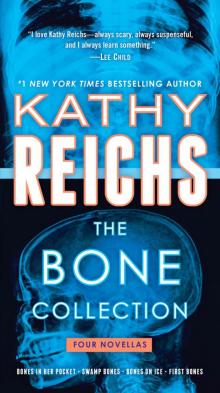 The Bone Collection: Four Novellas
The Bone Collection: Four Novellas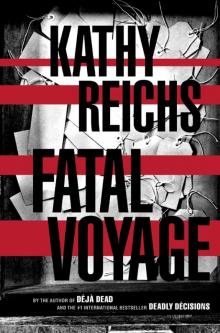 Fatal Voyage
Fatal Voyage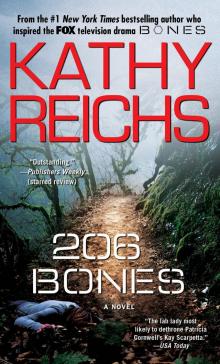 206 Bones
206 Bones Bones to Ashes
Bones to Ashes Terminal
Terminal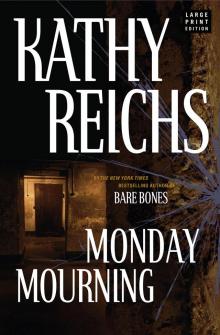 Monday Mourning
Monday Mourning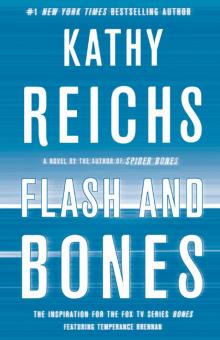 Flash and Bones
Flash and Bones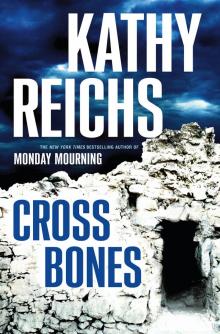 Cross Bones
Cross Bones Devil Bones
Devil Bones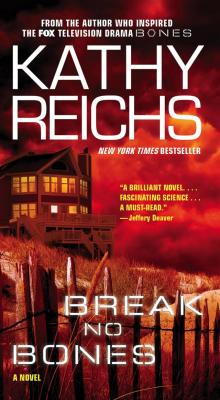 Break No Bones
Break No Bones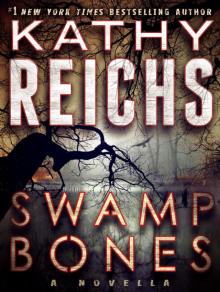 Swamp Bones
Swamp Bones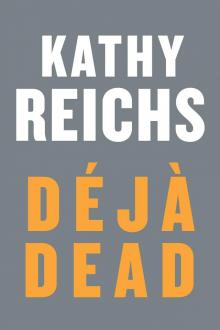 Déjà Dead
Déjà Dead Shock
Shock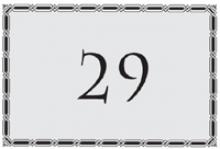 Spider Bones
Spider Bones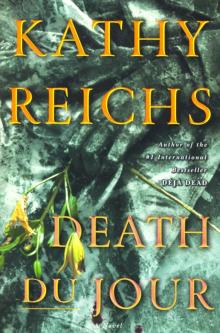 Death Du Jour
Death Du Jour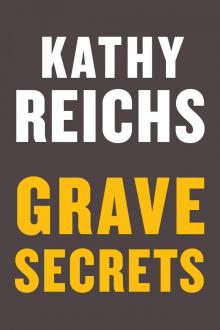 Grave Secrets
Grave Secrets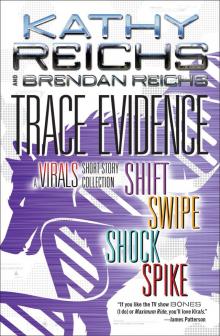 Trace Evidence: A Virals Short Story Collection
Trace Evidence: A Virals Short Story Collection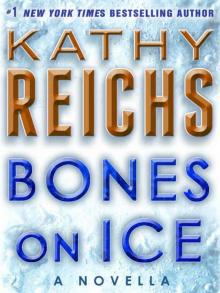 Bones on Ice
Bones on Ice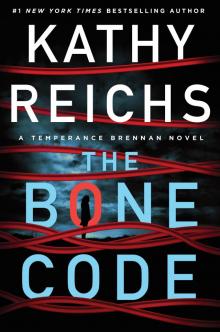 The Bone Code
The Bone Code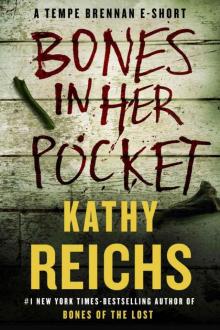 Bones in Her Pocket
Bones in Her Pocket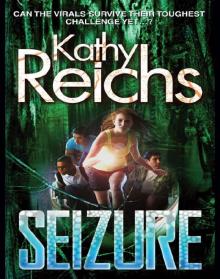 Seizure:
Seizure: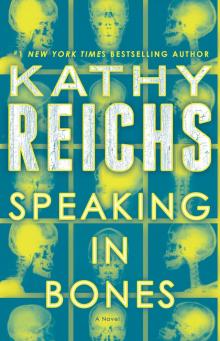 Speaking in Bones
Speaking in Bones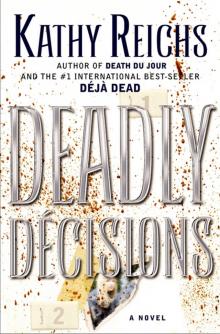 Deadly Decisions
Deadly Decisions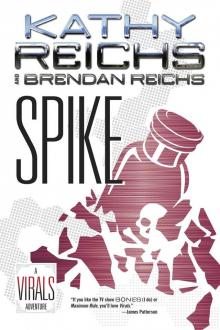 Spike
Spike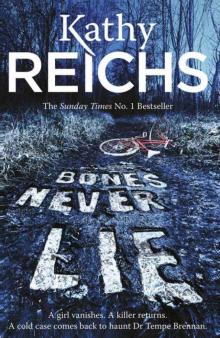 Bones Never Lie
Bones Never Lie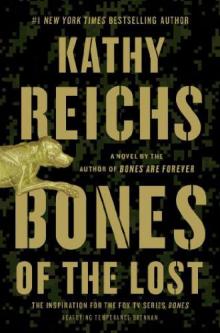 Bones of the Lost
Bones of the Lost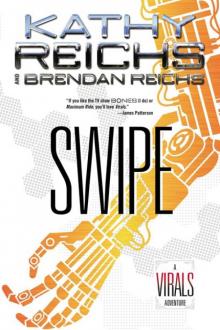 Virals 03.5 - Swipe
Virals 03.5 - Swipe Exposure
Exposure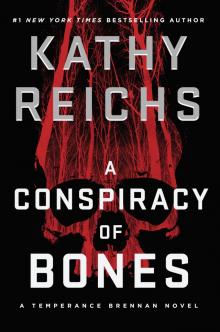 A Conspiracy of Bones
A Conspiracy of Bones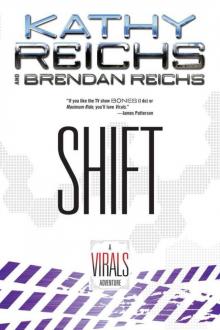 Shift (tory brennan)
Shift (tory brennan)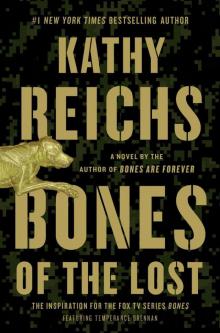 Bones of the Lost: A Temperance Brennan Novel tb-16
Bones of the Lost: A Temperance Brennan Novel tb-16 Virals tb-1
Virals tb-1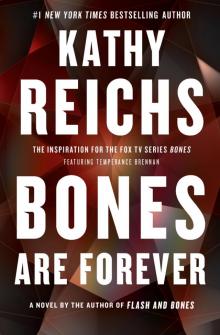 Bones Are Forever tb-15
Bones Are Forever tb-15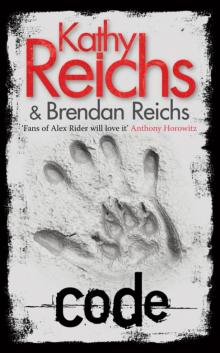 Code tb-3
Code tb-3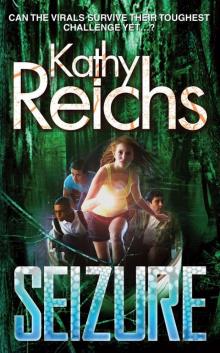 Seizure tb-2
Seizure tb-2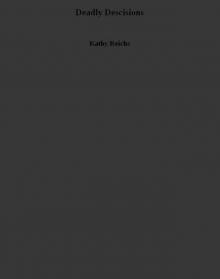 Deadly Descisions
Deadly Descisions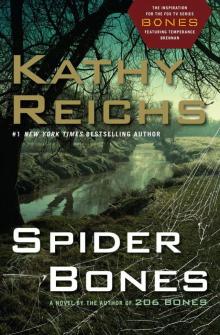 Spider Bones: A Novel
Spider Bones: A Novel